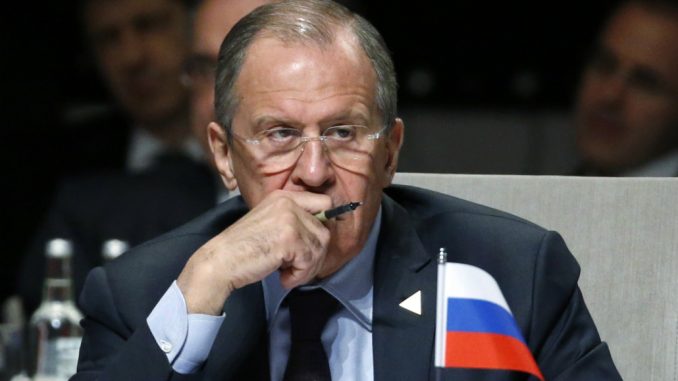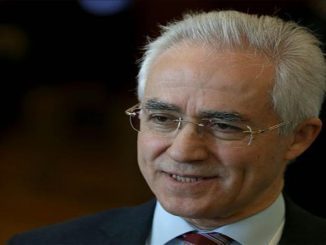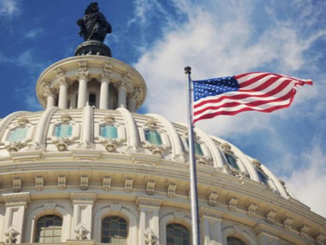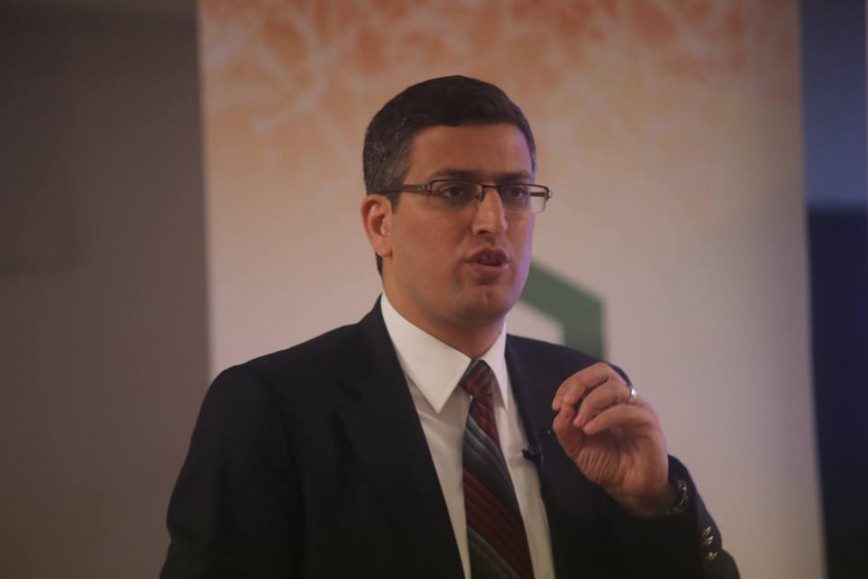
Russia complained about the US’ refusal of Moscow’s demand in taking part in the investigation into the chemical weapons attack in Syria earlier this month that killed more than 83 civilians and Assad regime was the blamed art in it.
More than 87 civilians were killed in Syria in a new chemical attack carried out by Assad regime’s air force on the rebel-held Idlib province on April 4.
The Syrian Observatory for Human Rights said the attack caused many people to choke or faint, and some had foam coming from their mouths, citing medical sources who described the symptoms as possible signs of a gas attack. All the children were under the age of eight.
Medical sources said that more than 300 other civilians were injured in this attack, and many of them were transferred to hospitals near the Turkish borders or inside Turkey, where poison tests were made.
In a sharp escalation of the U.S. military role in Syria, two U.S. warships fired dozens of cruise missiles from the eastern Mediterranean Sea at the airbase controlled by Assad regime forces from which the attack as carried out.
Trump ordered the strikes just a day after he pointed the finger at Assad for this week’s chemical attack.
“Tonight I ordered a targeted military strike on the airfield in Syria from where the chemical attack was launched.”
“Years of previous attempts at changing Assad’s behavior have all failed and failed very dramatically,” Trump said on Thursday.
Russia condemned the strikes, saying Washington’s action would “inflict major damage on US-Russia ties”, according to Russian news agencies.
But the US allies, including the UK, backed this move, calling for more pressure on Assad regime and blaming Russia for backing Assad accusing Putin of taking part in killing the Syrian civilians.
Sarin traces found
The World Health Organization said there was a reason to suspect a chemical attack, with some victims displaying symptoms suggesting exposure to “a category of chemicals that includes nerve agents”.
Medical charity Medicins Sans Frontieres (MSF) said people it treated had symptoms consistent with nerve agents such as Sarin.
“MSF saw eight patients with symptoms – dilated pupils, muscle spasms, involuntary defecation – consistent with exposure to neurotoxic agents such as Sarin,” the group said in a statement.
Tests in Turkey, where many of the victims were taken for treatment due to the lack of medical facilities inside Syria, offer the first insight into the actual toxins used in the attack.
The Turkish health minister Recep Akdağ said isopropyl methyl phosphonic acid, a chemical that sarin degrades into, was found in the blood and urine samples taken from the patients who arrived in Turkey. Some 30 victims were brought across the border following the attack last Tuesday, and a number of them have died.
Autopsies on victims in Turkey shortly after the attack, monitored by the World Health Organization, had concluded there was evidence of sarin exposure.
The results of the tests in Turkey by both Turkish authorities and the OPCW, if true, will add fuel to accusations by western powers that the Assad regime deployed sarin in one of the most devastating mass casualty chemical attacks in the six-year conflict.
This attack is the deadliest chemical attack in Syria since sarin gas killed hundreds of civilians in the rebel-held Ghouta area near the capital in August 2013. Western states said the Assad regime was responsible for the 2013 attack but it denied the charge.
Chemical weapons experts sent for investigations
The fact-finding mission was sent by the Organisation for the Prohibition of Chemical Weapons (OPCW) in The Hague to gather biometric samples and interview survivors, sources said.
Samples taken from the poison gas site in Syria’s Idlib governorate tested positive for the nerve agent sarin, the British delegation at the OPCW said on Thursday.
“UK scientists have analyzed samples taken from Khan Sheikhoun. These have tested positive for the nerve agent sarin, or a sarin-like substance,” the delegation said during a special session on Syria at the OPCW in The Hague.
The UK result confirmed earlier testing by Turkish authorities that concluded that sarin had been used for the first time on a large scale in Syria’s civil war since 2013.
The OPCW mission will determine whether chemical weapons were used, but is not mandated to assign blame. Its findings, expected in 3-4 weeks, will be passed to a joint United Nations-OPCW investigation tasked with identifying individuals or institutions responsible for using chemical weapons.
International investigators have concluded that sarin, chlorine and sulfur mustard gas have been used in Syria’s six-year-old conflict, with government forces using chlorine and Islamic State militants using sulfur mustard.
Russia’s complaints
Russian foreign ministry said on Friday that the Foreign Minister Sergei Lavrov spoke by phone to U.S. Secretary of State Rex Tillerson and the two sides agreed to consider one more time an “objective investigation into the incident” under the aegis of the Organisation for the Prohibition of Chemical Weapons (OPCW).
The U.S. State Department said that during the call Tillerson reiterated to Lavrov his support for the OPCW’s existing investigative mechanism. They also discussed a range of issues, including those covered during Tillerson’s April 11-12 visit to Moscow, the department said in a statement.
The episode added to a long list of disputes between the two countries and has dashed Russian hopes that ties might improve with Donald Trump in the White House. Trump said last week that relations with Moscow “may be at an all-time low.”
Referring to another irritant in the relationship, the Russian ministry said Lavrov called on Tillerson to hand back “Russian diplomatic property in the USA unlawfully confiscated by the Barack Obama administration.”
Former President Obama expelled 35 suspected Russian spies in December and ordered the Russians to depart two countryside vacation retreats outside Washington and New York that he said were linked to espionage.
The ministry said the parties had agreed to launch a working group soon “to seek ways to get rid of irritants in bilateral relations.”
The Syrian crisis began as a peaceful demonstration against the injustice in Syria. Assad regime used to fire power and violence against the civilians and led to armed resistance. 450.000 Syrians lost their lives in the past five years according to UN estimates, and more than 12 million have lost their homes.



